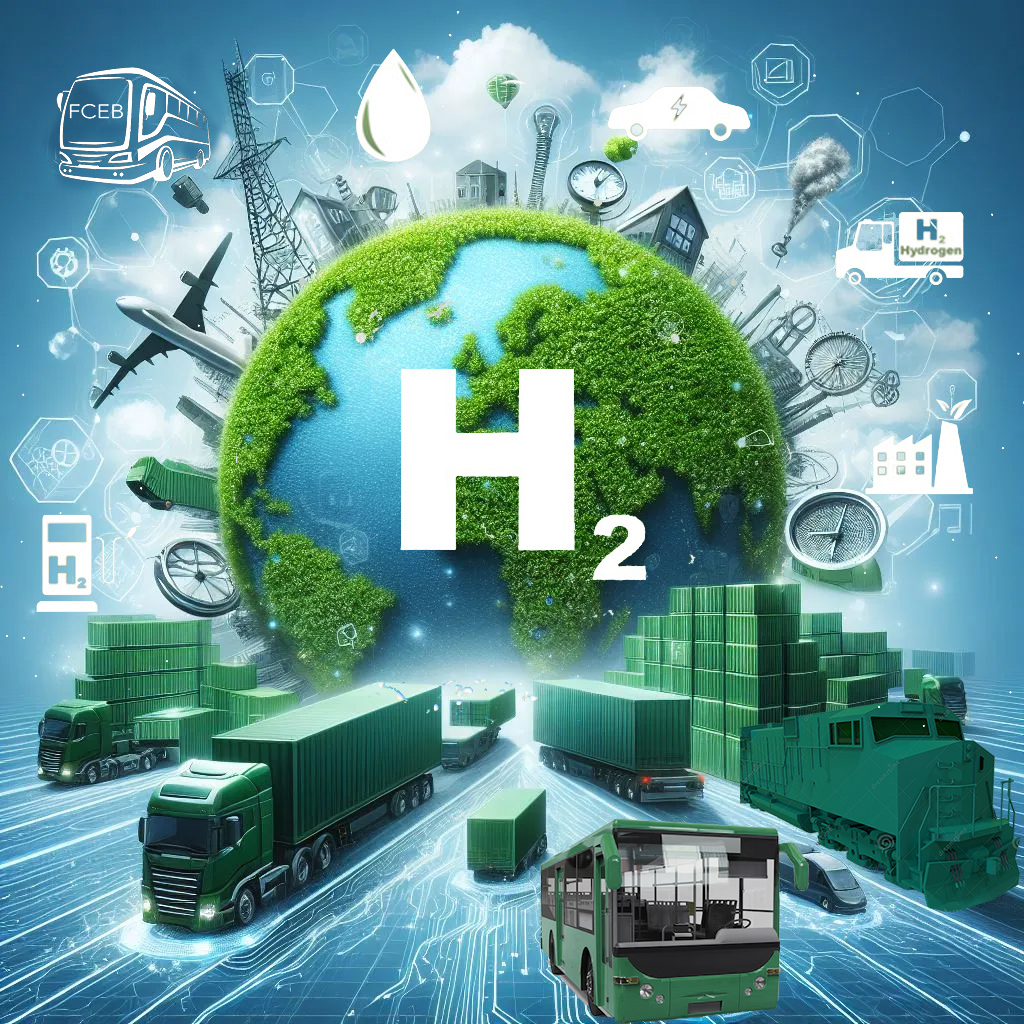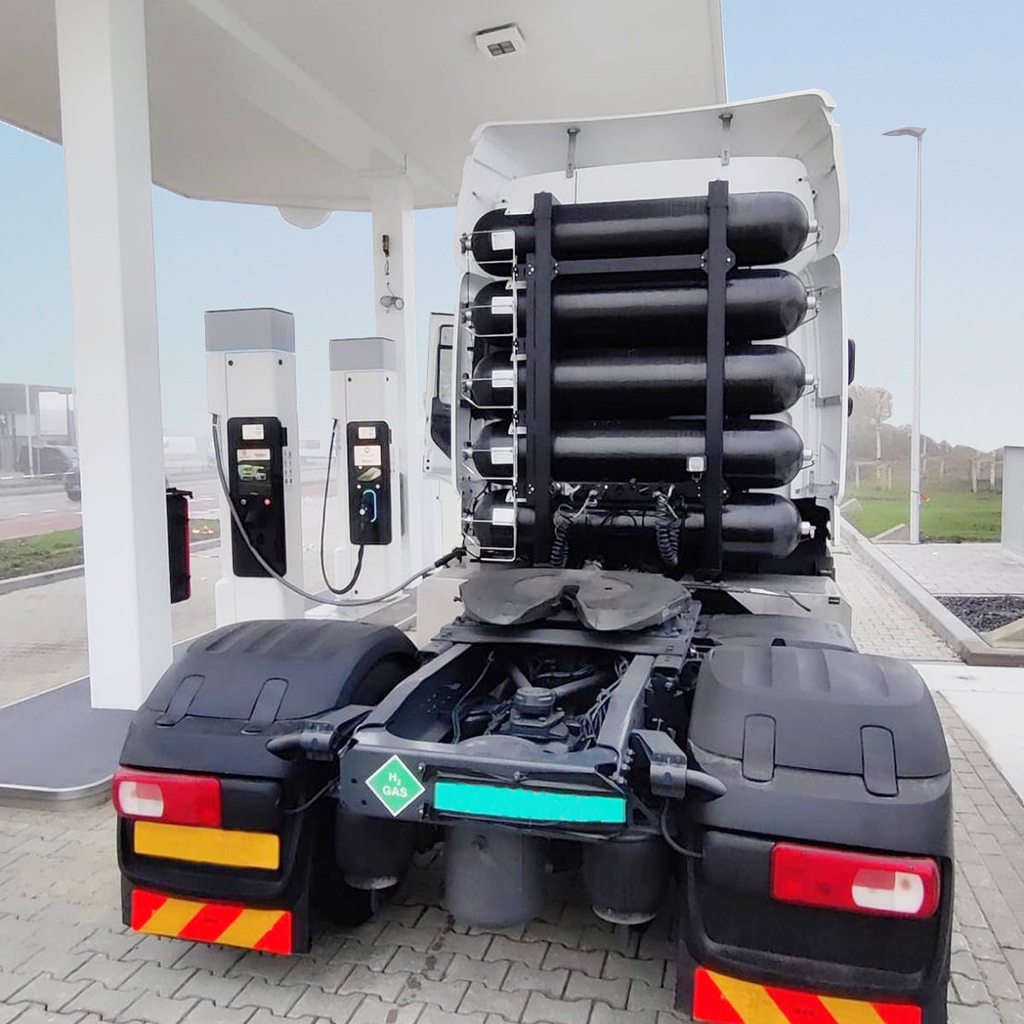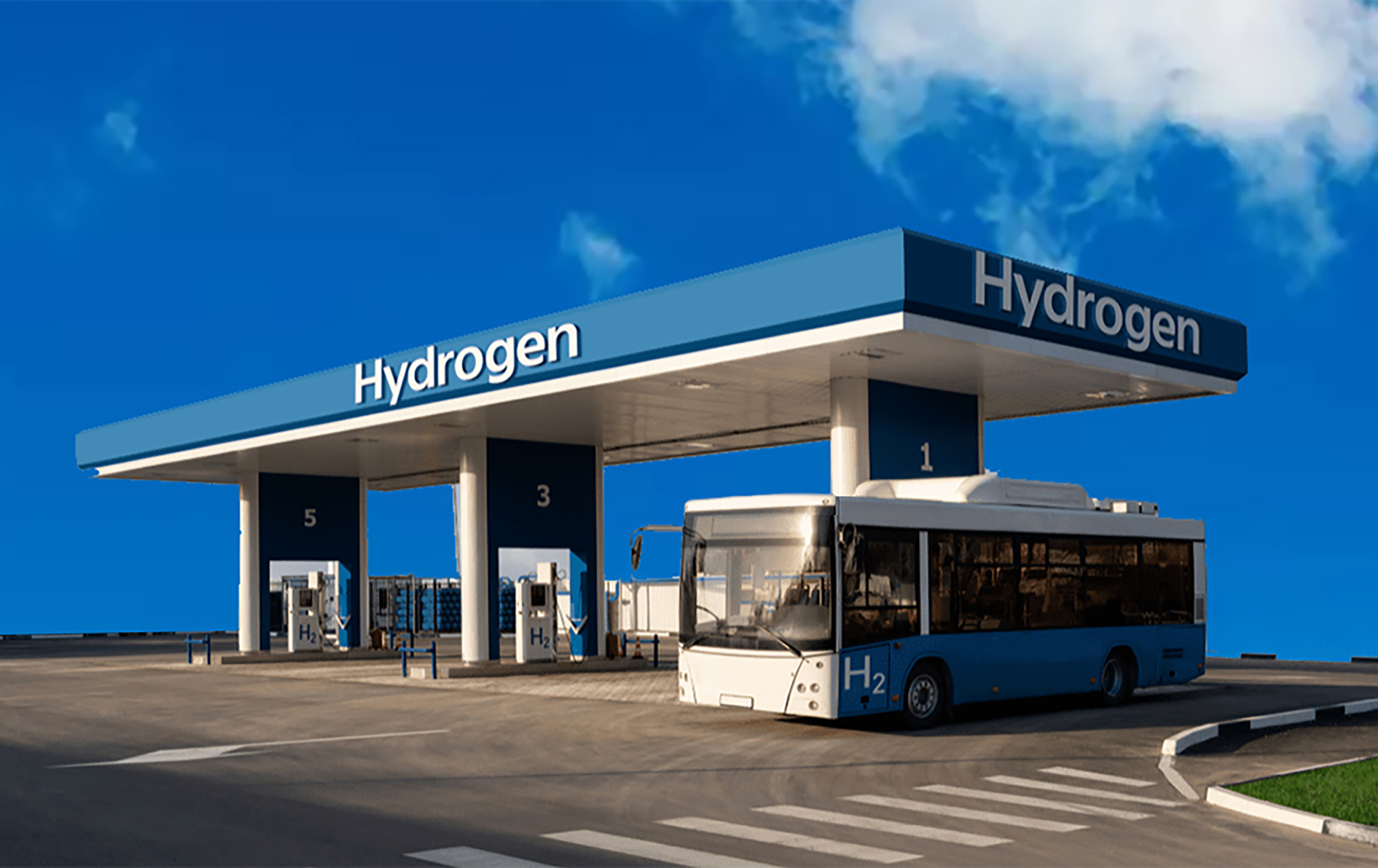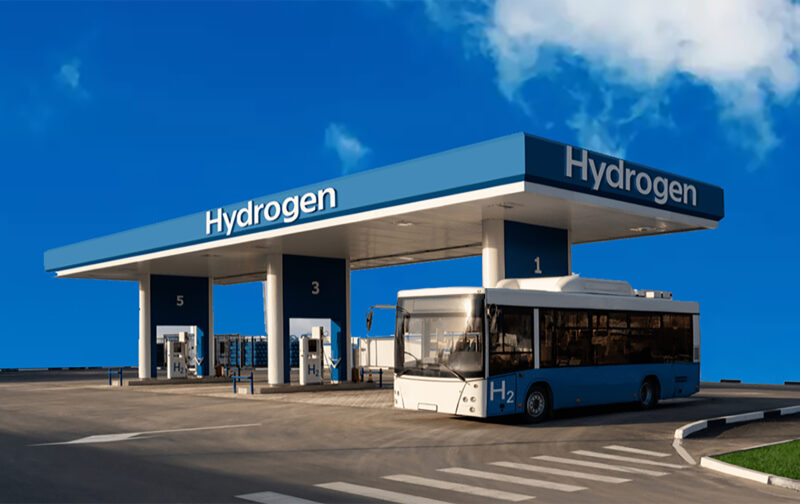Hydrogen is a powerful zero-carbon energy source and plays an important part in the decarbonization of transportation systems and industries. It offers a key complimentary solution to electric batteries.

The Key to Tomorrow’s Energy Transition
Hydrogen has long inspired hope and dreams for greener future. This hope resides in its uniquely powerful combustibility with about 2.5 times more energy per unit of mass than other fuels that, combined with its lack of carbon, provides a clear view of its potential large-scale use cases in transportation, industrial processes and electric flexibility.
Dreams are inspired by hydrogen’s potential for a future society where it fulfills all fuel needs. However, it is clear that such a society remains distant due to numerous obstacles and nascent interest.
A Driving Force in the Sustainable Energy Transition
Hydrogen functions as both an energy source and vector. While there are natural production sites, it remains unclear whether these will be sufficient and extractable. Energy vectors imply a transformation from one form of energy (e.g. chemical, electric) to another (heat, electricity), and transformations of this kind entail a significant loss of energy.
In this context as well as needing to remove carbon from transportation systems, hydrogen is particularly interesting as it can be used as a gaseous fuel in thermal engines (singular or combined) or transformed into electricity using fuel cells to power the vehicle electric propulsion unit. Though often contrasted with the all battery-powered electric model, hydrogen can provide a practical complementarity depending on the ecosystem and goals of our clients.


SYSTRA : Innovative expertise in sustainable multimodal transport
Our Vision
At SYSTRA Canada, our holistic view and unique consulting and engineering expertise has instilled the belief that there is no singular solution to any given issue and that tomorrow’s multimodal transportation will depend on our clients’ varying energy ecosystems.
Our Expertise
SYSTRA Canada has strong expertise in fields relating to hydrogen, notably in the electrification of bus depots. We are specialized in the conversion of energy infrastructure to integrate battery and hydrogen-based solutions, as well as conducting studies on the reduction of greenhouse gas (GHG) emissions and technological options related to hydrogen production, storage, and delivery.
Our Strategy
SYSTRA is leading in the deployment of Hydrogen Refuelling Stations (HRS), evaluation of technical and financial impacts (CAPEX and OPEX), as well as analysis of regulatory and environmental challenges. We propose various strategic approaches, manage environmental authorizations, and support clients in land acquisition, equipment maintenance, and security. SYSTRA also undertakes preliminary design studies and the assembly of financial records, including subsidies and public-private partnerships (P3).

TOMORROW’s Energy, Today’s Solutions
Hydrogen, a key vector in the energy transition, provides a complimentary solution with electric batteries in the decarbonization of transportation and industries. SYSTRA Canada, with a wealth of expertise, supports its clients in the development of sustainable and innovative solutions, integrating hydrogen production, storage, and distribution.


 Australia
Australia  Brazil
Brazil  Chile
Chile  China
China  Columbia
Columbia  Denmark
Denmark  Egypt
Egypt  France
France  India
India  Indonesia
Indonesia  Ireland
Ireland  Italy
Italy  Malaysia
Malaysia  New Zealand
New Zealand  Norway
Norway  Panama
Panama  Peru
Peru  Poland
Poland  Portugal
Portugal  Saudi Arabia
Saudi Arabia  Singapore
Singapore  Spain
Spain  South Korea
South Korea  Sweden
Sweden  Taiwan
Taiwan  Thailand
Thailand  Türkiye
Türkiye  United Kingdom
United Kingdom  United States
United States  Vietnam
Vietnam